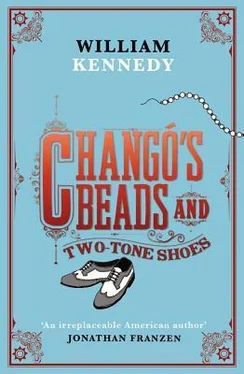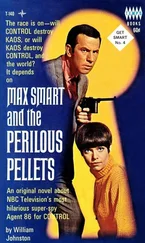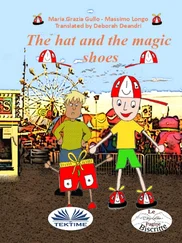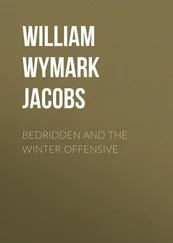
Moncho and Alfie were waiting for Quinn at the house of Arsenio’s old wife. Quinn briefed them on his interview and his cigar and said he needed to sleep before he could utter another word. They put him in the backseat of Moncho’s car with a pillow and Moncho drove to Palma Soriano where Renata and Quinn would resume their honeymoon.
But Renata was not there.
Holtz said he had driven her back from Moncho’s in the Buick an hour after Quinn’s departure for Fidel. She said she did not want to sleep in that house, and when they got to Holtz’s she immediately went to her room. Holtz woke at eight this morning to find that she and the Buick were gone, and no message left.
Quinn was baffled. She knew she was a target for the police or the SIM through her link to Diego, and maybe because she joined the protesting women in Céspedes Park. Was she angry at not seeing Fidel? She knew it was unlikely. Punishing Quinn for going without her? And how does vanishing compensate for being left out? Isolating herself to cool down? Going off alone to affirm her intrepidity, self-sufficiency, guts, and defiance — making a willful leap into rebel-fugitive status?
They checked airlines to see if she flew to Havana. Would she take a train? Drive? They checked hospitals for accidents. Would she go home? Unlikely. Her mother said the police had come to the house looking for her. Should we call the police in Santiago to see if she’s in custody? No. Retrace her steps — follow the road back to Santiago to see if the car had a breakdown, or was abandoned. Check city streets, restaurants, the Yacht Club. Check the hotel — she’s still registered and has clothes in the room. Have Holtz call anybody left in the Directorio to see if she made contact. Call Esme. Call her aunt in Cárdenas, the one she lied about going to see. Natalia would call Renata’s friends in Oriente, but she only knew a few. Moncho called people in the 26th underground in Santiago. He sent a message to Fidel’s people to be on the watch, also to Arsenio. Moncho had family contacts to call. Holtz and his sister got nowhere. Moncho turned up nothing. Quinn called Max who instantly blamed Quinn for letting her go off alone. He said the Post couldn’t run his Fidel interview because of new censorship pressure. Max said he’d pass the word to his spies in high places, the Buro, the police. “If anything happens to that girl, Quinn. .” and he hung up.
She would call. She would come back to Holtz’s. She would get a message to Quinn, her husband. She was so wildly in love that she had married him before she got to know him. She was a resourceful woman. Savvy. A good driver. Didn’t drink much. Knew how to protect herself. Wouldn’t willfully put herself in jeopardy. Smart as they come. Brilliant. A survivor. Narciso said danger lay ahead for her and gave her that necklace, told her to show it to her enemy and tell him if he harms her Changó will kill him. She took that seriously. Narciso said Quinn was in danger from murderers. The police? The SIM? Batista’s freelance gangsters? Alfie said he’d put his friends on the case. Alfie was worried. He really liked Renata. He’d look for her with Quinn, wherever, however long it took.

Quinn entered the hall, his hair thick in a casual torsion to the right, and very black. He smiled at the group, mostly men, though he could not be sure whether women were among them. Their number seemed to diminish, which was of no matter. He was ready to speak, and did, text in hand which he did not look at or need, and what he said evoked laughter from all, and he knew the audience was ready for him and he grew confident. He spoke about faces and masks, how we need them to survive, which was a gaffe. He suddenly realized he knew several of the men and they were dead. To his left sat an old colleague, dead, but full of smiles that seemed earnest, which was unlikely, for there was bad history here. Perhaps it was a welcoming, glad to see you here among the dead.
The reason Quinn was speaking of surviving to dead men would become clear, he was sure. He talked on but the audience was now lost to him, vanishing rather quickly. The old colleague stood up and smiled, not speaking, but giving enthusiastic gestures for all Quinn was saying. Then he left and Quinn turned and spoke his next words to half a dozen listeners, his hair moving and then flung back in a manner that suggested a brilliant British film actor whose name he could not remember. He wondered if any in the audience would recognize the dramatic effect of the thrown hair, which was a bodily gesture of completion, confidence, singularity. It was a most dramatic effect for any actor. It did not matter that the audience was gone. Quinn knew how witty, how meaningful his remarks were.
“The arc of justice,” he said to the empty room, “the arc of justice. .”
ALBANY, WEDNESDAY, JUNE 5, 1968

Daniel Quinn’s day began with the tragedy of Bobby Kennedy comatose but wide-eyed on a hotel kitchen floor, vigils for him now unfolding across the nation, including one in Albany. Quinn’s story in yesterday’s paper on the silencing of Albany’s radical Catholic priest had also infuriated blacks and college students, and a protest meeting set for tonight could inflame a city already quivering with racial tension.
Quinn’s father, George Quinn, lived with Quinn and could not be left alone. Renata had gone to the clinic to bring home her niece, Gloria, and Ursula, the family housekeeper who doubled as keeper of the quixotic father, had totaled her car, broken her arm, and would do no keeping of any sort today. Quinn went upstairs and found his father dressed for dinner, wearing his gray Palm Beach suit, maroon paisley tie, and tying knots in one of his two hundred neckties. The ties hung on five wooden hangers in the room’s closet, a dozen or more of them knotted and reknotted, one tie outstanding with four knots in it. Quinn moved his father away from the ties and began the daily unknotting.
“How you feeling?” Quinn asked.
“I’m several flavors of excellent. How’s yourself?”
“I’m tip-top but Ursula isn’t coming today. She totaled her car and broke her arm.”
“Was she hurt?”
“She broke her arm.”
“Ursula?”
“Yes.”
“How did she do that?”
“She totaled her car.”
“Was there much damage?”
“It was totaled.”
“That doesn’t sound good.”
“No, and it means we should get you out of the house. Get a little recreation. What do you say?”
“Recreation is fine if you don’t get too much of it.”
“How about a few hours? That’s not too much. Get you out on the town. Whataya say we go down to the Elks Club? How does that sound? I’ll drop you when I go to the paper.”
“There’s people who come in and out and you don’t know who the hell they are.”
“You’ll know some of them.”
“It’s neglect all the way along.”
“What do you mean, neglect?”
“Right up to snuff.”
“What do you mean, snuff?”
“The best. The griff. The spiff. The whole thing here is static.”
“What do you mean, static?”
“Static has got to be good.”
“All right. Get your hat and we’ll go down to the Club.”
“The Club?”
“The Elks Club.”
“I joined the Elks when the bishop wouldn’t let us have beer in the K. of C. alleys.”
Читать дальше















